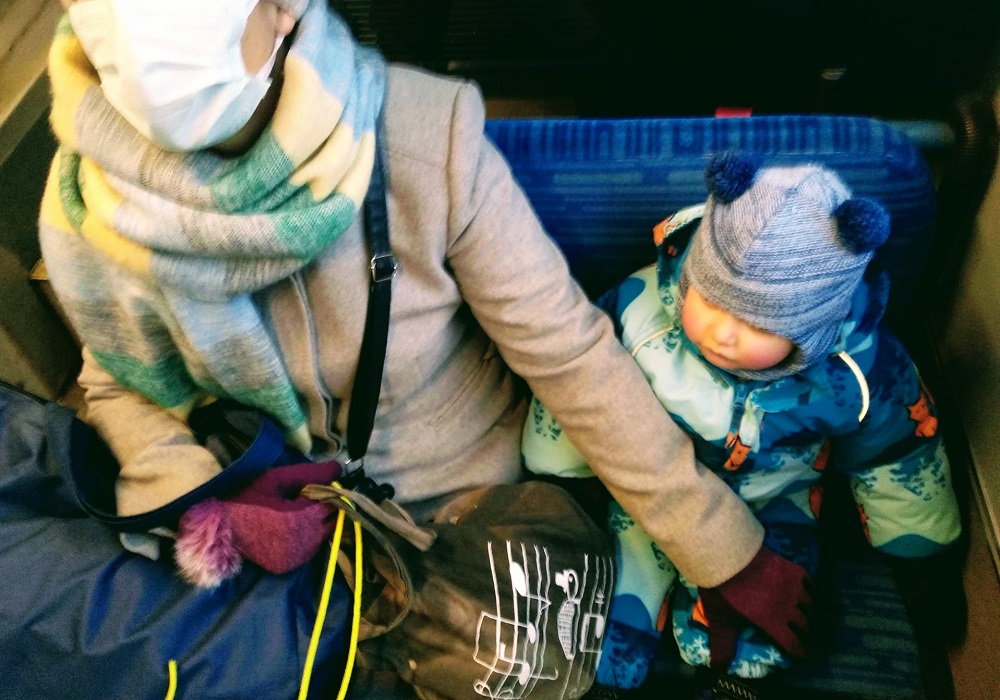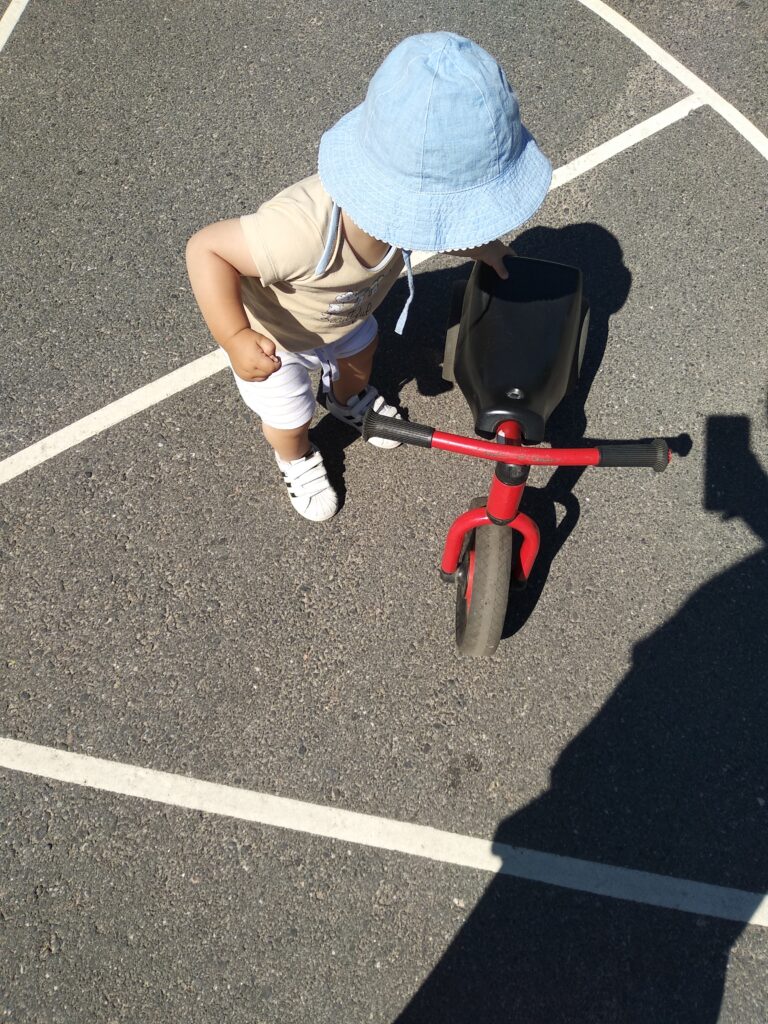By Zeynep Ceren Akyüz Correia
This blog post was inspired by Onur Eylul Kara´s online course “Children Through the Eyes of World” and the discussions we had in the seminars.
In my birth country Turkey, the initial reaction to the coronavirus pandemic was to rush to stock up on hand sanitizers (kolonya). Later, people sought safety in the metallic cocoons of second-hand cars. Another measure was to forbid the use of public transport for children and the elderly, two opposing ends of life whose fragility in a capitalist society were thus crystallized. To avoid being moored in their homes, they were forced to find private solutions for going from one place to another. This totalizing approach, barring certain age groups from using public wealth as much as economically more active segments of society, run the risk of making them lose faith in public transport and question their place in public space.

Margaret Archer states that “due to our human nature as ‘late developers’, compared with other species, the circumstances in which we remain involuntaristically embedded throughout our childhood condition what we project as possible, attainable and even desirable” (Archer 1995, p.200). That is why childhood is not simply a period of life that you pass through on the way to adulthood; it stays, leaves marks, and continues to be defining later in life. It is the phase of life in which, as individuals, we go through a dense period of growth. I think our childhood also shapes how we view transportation, and I believe the discursive and non-discursive measures taken during the pandemic with regards to transportation will have a strong impact on the future adult lives of today’s children. It is now time to rethink designs, practices, rules, fees, and other aspects of public transport so we are better prepared for future crises and can avoid making the same mistakes. I believe this to be a recognition we can grant the youngest and oldest members of Turkish society.
During the long unfolding of the pandemic, I took an ordinary walk around my neighbourhood in Helsinki and saw something as beautiful as the aurora borealis: two young children riding unicycles side by side. My heart was in my mouth with the joy I got from this image! This post is mainly about children and public transport, but I would like to say a few words about the sensual mark that it aims to leave on the reader: to find ourselves, we need to engage with active transport and to meet with the Other we need to engage with public transport, because in the spaces of public transport the seeds of the agape are planted. In ancient Greece, the agape was the third form of love besides Eros and Philia. Its distinct qualities reside in a form of relational experience that represents acting for good without counting or expecting the same from others – it is a form of unconditional love.
The Metaphysics of ‘Children Are the Future’.
To change children’s perception of public transport, it is a must to dissolve the metaphysics of the phrase ‘children are the future’. Children are here and now, they are valuable beings on their own, and they also want and need to go to from one place to another. In many cultures, children are invisible, their existence simply projected to the future, to that time when they will reach adulthood. One of the unwritten rules of public transport in Turkey is to give your seat to adults. As a child, you will face harsh criticism if you continue sitting while an adult is standing. Children´s muscle capacity, height and, more importantly, their will to remain seated is regularly ignored during long public transport journeys. I believe this is one of the reasons they feel excluded from public transport, and thus from public space. As a result, they naturally dream of buying their own car when they reach independence, and any chance of forming a genuine connection with public transport is left withering on the vine. Of course, such alienation is not restricted to children. Unreliable schedules as well as manspreading and other behavioural patterns typical of patriarchal societies makes it both uncomfortable and a hassle for women (often accompanied by children) to use public transport. Traffic ‘sucks’ both figuratively and literally. Due to years of divestment, transport supplies are rarely sufficient. Service is often limited to the daytime and turns to a pumpkin at night. It drains the energy of commuters.

Nevertheless, public transport is still the only option for many children. It is affordable and, despite everything mentioned above, parents still feel more comfortable knowing that their children commute by bus, dolmuş (which literally means ‘full’) or metro than by bike or scooter as almost all cities in Turkey lack the necessary infrastructure and transport culture to make it safe.
The Turkish Language Society (TDK) defines children as those who engage in behaviours that are unworthy of adulthood. I believe this can only be true if, ironically, we consider that children are eager and braver members of society who engage in different modes of active transport, often in contrast to bulky, lazy and cowardly adults. Children, even in dire situations, enjoy their own way of being by affirming their desires, being open to the unknown, unthought or unseen, and ready to make new discoveries. They are always becoming as opposed to adults who often seem entrenched in their way of life. I believe this feeling of lightness is their inner strength. In his autobiography Fugue pour violon seul, Tedi Papavrami mentions that, as an adult, he needs to work hard to be able to achieve the flow of his body while playing his violin. As a child, that flow came naturally. Our experiences and interactions with the world often come more naturally when we are children. In adulthood, a certain stiffness, or rigidity, tends to set in. Thus, we have a lot to learn from children, and we should do with them, not for them when it comes to public transport. As I emphasize in the title, we should learn to be a ‘kidult’, an adult with childish tastes.
Venues for Empowering

In the playground where I take my son daily in Helsinki, there are dozens of bikes and scooters for children. There are many different shapes and sizes, all free to use. Even if they do not own a bike or a scooter, children get the chance to experience them. They can have fun, feel the wind, fall, stand up and continue, experiencing the freedom that such instruments give. These are the first steps towards feeling ready to use bike lanes later. Biking which used to be a game once, will then carry them from one place to another. I consider giving children the opportunity to have experiences on the playground, a secure place for discoveries, at a very early age, to be an ‘indirect action’; that is, an action that spreads over time and helps to ensure larger problems do not occur later. It stands in contrast to waiting for problems to happen, and then solving them through ‘direct action’. Kılıçdaroğlu, the chair of Turkey´s main opposition, the Republican People`s Party, recently promised to lift taxes for first-time buyers of first-hand cars. This is a ‘direct action’ and not a solution to the mobility problems that many cities in the country face. It is an action that damages mobility as commons. Moreover, it causes further damage to mobility justice and lacks the progressive vision needed to resolve the problems associated with private car-based mobility.
In addition,much research and many opinion pieces have been written on how Barbie dolls create damaging body images for girls and toy guns normalize violence for boys. However, I believe not many have questioned the habit of buying cars to boys. From an early age, a vision of masculinity is imposed upon children through toy cars, a mode transport closely linked to specific political, economic and social-cultural ideas. This is a small thing in the midst of bigger issues, and not my area of expertise, but I believe it deserves consideration. What impact would it have if we start giving young children toy trains, buses, and bikes, and telling them stories that pull them closer to modes of public and active transport?
A Seat of One´s Own
In cities, especially, public space is seen as a scene of tasteless responsibilities which we must endure because it is so, and because it is a place where the Other is present. In relation to their private lives, their families and homes, people are keen stress the importance of having a room of one’s own. We often do not see a similar claim made for the public space of public transport: having a seat of your own is not something often called for. I believe that in cultures like that of Turkey, children should be prioritized in public transport. They should have seats of their own that are smaller and lower, matching their physiology. Design matters when we talk of inclusivity. In Turkey, the municipality of Izmir has just started this practice, an initiative which corresponds with their aim to make children priority passengers in public transport. Moreover, children should have their own bike lanes where speed is limited to match their pace, and they should have free access to public transport. These measures might make them cherish public space and make them feel valued in public, and not just under the roof of their home.
As mentioned earlier, I see the choice to use public transport as an expression of the agape. Public transport has the potential to create mobility justice; to ensure that “the free flourishing of each is the condition for the free flourishing of all” (Bhaskar 2016, p.xii), to borrow a phrase from Mervyn Hartwig. Public transport is the only way to reduce carbon emissions for a greener future and to achieve climate targets. By making an ethical choice and choosing public transport over private, we choose not to hurt; we choose voluntary refrainment. Having a driving licence, being able to afford fuel and a car, but still choosing not to, is one way of looking after our children. Not because they are our future but because the present is theirs as well as ours. Therefore, if, following the pandemic, we want to reimagine public transport, thinking like children – like a kidult – is a good place to start.












